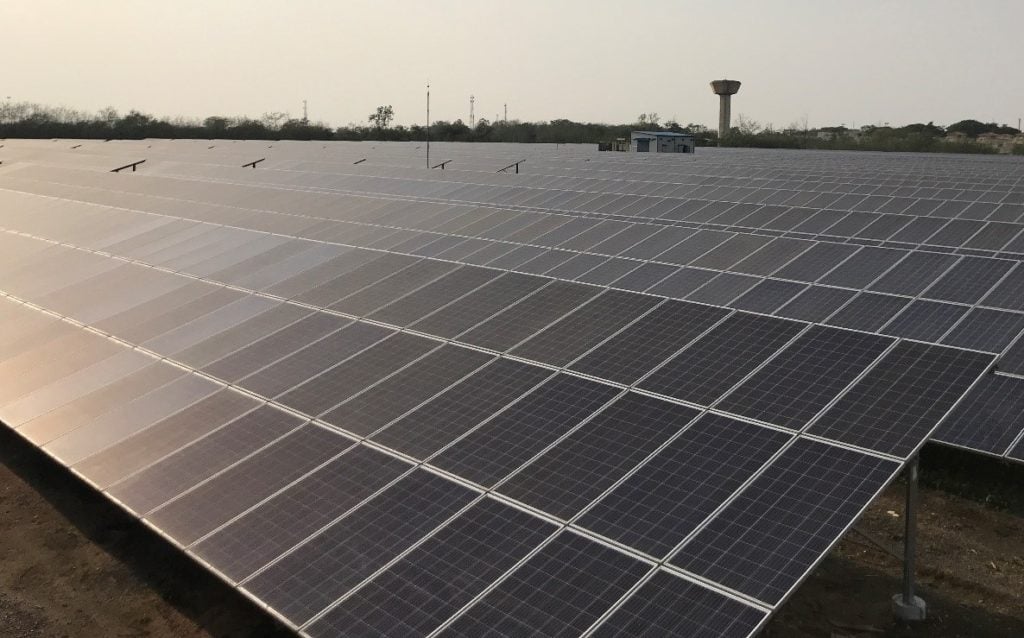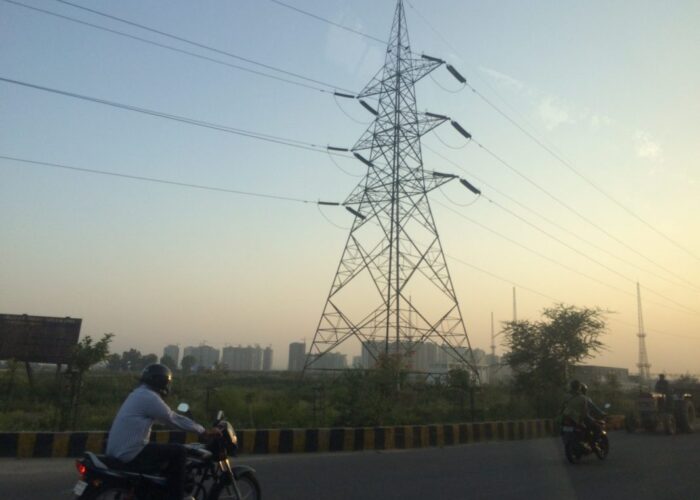
India will introduce a 40% basic customs duty (BCD) on solar modules as of April 2022 to cut the reliance on imports and expand the country’s PV manufacturing base.
A 25% duty will also be introduced on solar cells from the same date, according to India’s Ministry of New & Renewable Energy (MNRE).
Try Premium for just $1
- Full premium access for the first month at only $1
- Converts to an annual rate after 30 days unless cancelled
- Cancel anytime during the trial period
Premium Benefits
- Expert industry analysis and interviews
- Digital access to PV Tech Power journal
- Exclusive event discounts
Or get the full Premium subscription right away
Or continue reading this article for free
With the country targeting around 280GW of installed solar by 2030, the ministry said in a document that India “needs to develop domestic solar manufacturing capacities and reduce its dependence on imports to avoid disruption in future”.
While the country initially proposed import taxes on solar equipment in the middle of last year, no definitive announcements were made with regards to the BCD. Instead, a safeguard duty was introduced on the imports of solar modules and cells from China, with a levy of 14.5% now in place until the end of July 2021.
Industry observers expected India’s government to announce plans for the basic customs duty in the country’s budget last month. However, it instead immediately raised the levy on solar inverters from 5% to 20%.
The MNRE document said COVID-19 brought disruptions on imports of solar modules and cells, which affected capacity additions in the country. To reach the 280GW figure by the end of the decade, the ministry forecasts that around 25GW of solar must be installed each year.
Recently released figures from JMK Research & Analytics reveal that India deployed just 2.6GW of utility-scale solar capacity last year. While the consultancy expects 2021 to be a “landmark year” for solar, it predicts 9.7GW of utility-scale additions.
A more optimistic projection is provided by Bridge to India, which expects 13.5GW of solar additions this year, made up of 11GW of utility scale and 2.5GW of rooftop capacity, an amount still far below government targets.
The MNRE said the BCD introduction forms part of India’s Atmanirbhar Bharat initiative to scale up domestic manufacturing. Other measures taken by the government to support local manufacturers include a production-linked incentives programme that will provide INR45 billion (US$603 million) over five years to boost the production of high-efficiency PV modules.
Media reports last year also suggested state-owned companies are in talks with the government over plans to establish a polysilicon supply chain in the country.






